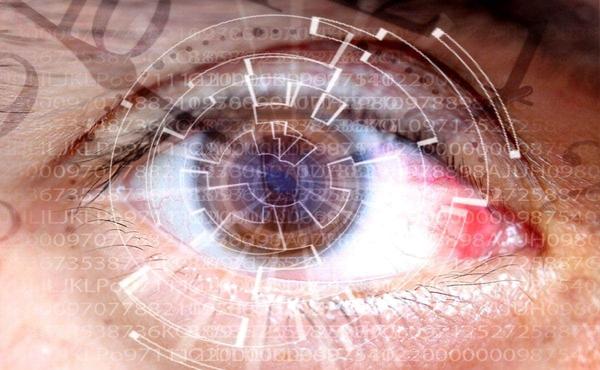08
02/2023
No one doubts the fundamental role of vitamin D for the good state of our body. "Thanks to the fact that knowledge about it is increasing every day, we can say that it is now given due importance, since it is involved in the functioning of various organs of the body," said Dr. Nines Almazán, a family doctor at the Palacios Institute of Gynecology and Women's Health Clinic, which highlights its importance in helping the body absorb calcium, which is why it is essential at the bone level. But it is also that vitamin D also plays an important role in the nervous, muscular and immune systems. But perhaps you have not thought that the lack of vitamin D also affects eye health, since it affects the protection that the retinal cells have against the damage caused by UV rays, as explained by the VISUfarma experts. . To talk about this link between this nutrient and the health of our eyes, we have spoken with Dr. Alberto Calvo, ophthalmologist at Clínica Baviera Logroño.
Read also: The vitamins and minerals that help you protect the health of your eyes
Whenever we think about the health of our eyes, we think of vitamin A, but can a vitamin D deficiency affect our eye health?
Up to 40% of the adult population in Spain and 80% of those over 65 years of age have a deficiency of this vitamin to a greater or lesser extent. These low concentrations of vitamin D in the Spanish population can be explained by the low intake in the diet, sun protection in summer and because most of Spain is located in areas where the possibility of synthesizing vitamin D is scarce at certain times of the year. Vitamin D is a multifunctional hormone, which not only affects calcium metabolism, but also plays a role in regulating the immune system, as well as cell growth and survival. Various ocular cell types can be activated in response to vitamin D, which makes it a biologically relevant and interesting molecule to study in relation to the visual apparatus. Epidemiological studies show us that vitamin D levels and genetic variations influence the development of a wide range of pathologies, such as myopia, age-related macular degeneration (AMD), diabetic retinopathy, and uveitis. All this suggests that vitamin D could play a protective role in eye health.
How to apply join in 3 tables if 3rd does not have primary key?: How to join between three tableslike i ... http://t.co/mWUHBNs192 #sql
— @stuartpowers bot Fri Apr 19 13:15:57 +0000 2013
Why is it important to keep its levels at optimal levels if we want to have healthy eyes?
Maintain adequate levels of vitamin D (in most medical society guidelines levels are recommended around at 30 and 50 ng/mL) will help us maintain the integrity of the musculoskeletal and immune systems and may also have a beneficial effect on the eyes.
What problems related to eye health can be linked to a Vitamin D deficiency?

The eye is a very metabolically active organ, with requirements that make it one of the most profusely vascularized organs in the body. This makes it especially sensitive to certain deficiencies such as vitamins. A recent study has described a possible relationship between presenting low levels of vitamin D and the appearance of new inflammatory episodes in patients with non-infectious uveitis, a type of eye inflammation. There are several studies that propose that this deficit may favor the onset and progression of AMD and some authors also relate it to a deficit in tear production or dry eye. It has also been found that myopic patients have a lower blood concentration of vitamin D than non-myopic patients. Some authors have associated vitamin deficiency with the degree of severity of diabetic retinopathy and with the possible development of primary open-angle glaucoma, the most frequent subtype of glaucoma at the population level.
Read also: Glaucoma: can the so-called 'silent blindness' be prevented?
Is it advisable, therefore, to take supplements of this vitamin on certain occasions?
A minimum daily intake of vitamin D is recommended. The guidelines recommend supplementing in cases of analytical deficiency of the same. Dietary supplementation is also recommended in some older age groups to improve bone health and reduce the risk of non-vertebral fracture and in those patients with muscle weakness and risk of falls.
There is no evidence for the use of vitamin D supplements in order to obtain benefits outside the musculoskeletal system and to reduce the incidence of cancer in the general population and this is, therefore, also applicable to what refers to the eye apparatus.
HELLO! The total or partial reproduction of this report and its photographs is prohibited, even citing their origin.
- 724
- how much vitamin d for women's health
Related Articles
How many sit-ups should I do a day to get rid of my belly?
30/01/2022Flattening the abdomen or reducing the fat in this area is a difficult task. But don't despair, we will solve the question: how many sit-ups should I do a day to eliminate the belly. Abdominal fat...
Jalisco The Ministry of Health invites men and women to learn about family planning services
04/02/2022The Jalisco Ministry of Health invites men and women of reproductive age to learn about and use the various services offered by the Family Planning and Contraception Program, which...
Telva International day against gender violence: screens multiply mistreatment against women
01/02/2022SaludUpdated Change of scenery, same victims. On the International Day for the Elimination of Violence against Women, we highlight how aggressions have been copied to the digital sphere, increasing...
Coronavirus Spain today | | Health The Trust Project
18/03/2022The Ministry of Health has reported 3,261 new coronavirus infections and 155 deaths, while the cumulative incidence drops more than six points in 24 hours to 109.3 cases. There is...